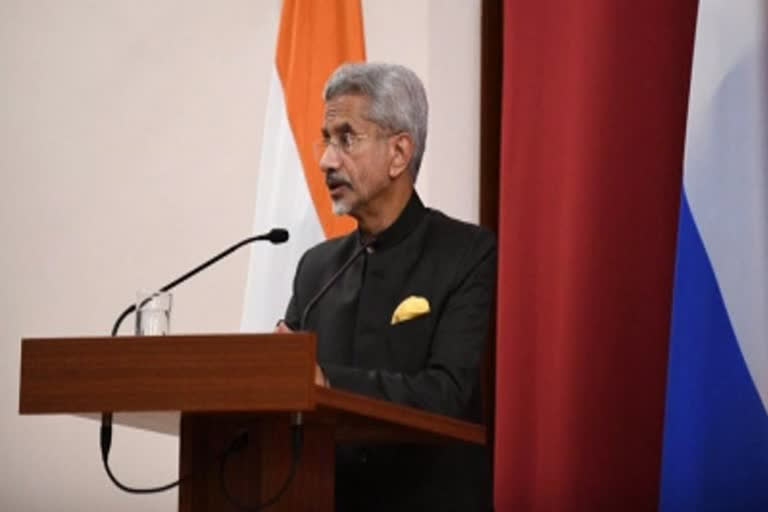New Delhi: External Affairs Minister Dr. Jaishankar on Friday joined his peers at the meeting of the QUAD Foreign Ministers in Melbourne to lay down the future prospect of a 'shared vision' and to uphold a rules-based international order, free from coercion — one based on respect for territorial integrity and sovereignty, giving a clear reference to a free and an open Indo-Pacific.
While New Delhi remained silent on the Ukraine-Russia row, it took no time to stress that India is against imposing 'national sanctions' on Myanmar after the foreign ministers said they remained 'gravely concerned' and jointly called for a 'swift return to democracy in Myanmar. They further asked the military junta to put an end to the ongoing violence there.
After the US Secretary of State accused Junta of committing horrifying crimes in Naypyidaw and imposing sanctions on a number of leaders of the Myanmar junta, EAM Dr. Jaishankar, without any hesitance, clarified that India does not support any such national sanctions as it shares a complicated border with Myanmar. He also added that the insurgents operating at the borders pose a real threat to India's security.
Commenting on the development, Rajiv Bhatia, former ambassador to Myanmar, Mexico, South Africa, and Kenya and an exceptional scholar, said "Dr. Jaishankar's statement is the reiteration of India's traditional policy. It is also the manifestation of India's strategic autonomy. While India is committed to pursuing a shared policy on the Indo-Pacific with the US, Australia, and Japan, New Delhi also has an independent way to look at some of the specific problems and this includes Myanmar."
Dr. Jaishankar also highlighted the challenge of insurgency by recalling the dreadful incident in which a Colonel and his family, including a child were killed in an ambush by militants. While the security context remains a major issue at the Indo-Myanmar border, Ambassador Bhatia, to this equation, emphasized that the multiplicity of factors and driving impulses behind India's Myanmar policy also remains to be a crucial factor in the entire scenario.
The instability in Myanmar is one of the key reasons that has contributed to complicating the security situations at the North-East of India, opined Bhatia. "Therefore, it is very important for New Delhi to convey its concerns to the military government and to seek their cooperation. This is exactly what Foreign Secretary Harsh Shringla did when he went to Myanmar in December last year," he highlighted. "However, unless Myanmar moves forward on its own, and experiments with democracy as it was doing before the coup happened, the country will continue to remain chaotic and unstable leading to disastrous consequences for all its neighbors," points out Bhatia.
While China is now advancing its ties with Tatmadaw - the Armed Forces of Myanmar (Burma) - EAM on Friday also said that Myanmar is India’s gateway to South East Asia and issues like cross-border insurgency and growing footprints of China and Pakistan in Myanmar are challenges for India’s security calculus. Responding to this equation, Bhatia pointed out that though China's presence in Myanmar is quite significant, Pakistan's attempts in this context have remained unsuccessful. "In this context, I'll reserve my judgment about China and Pakistan collaboration. But if it is there and escalates with time, then yes, certainly it will also create concerns for New Delhi," adds Bhatia.
When asked about the significance and relevance of ASEAN in restoring the democratic process in Myanmar, Bhatia said its an uphill task for them. "But they (ASEAN) are more suitable to handle it because they are a regional organization. The whole logic of regionalism in International affairs today is that a regional problem should only be solved by regional organizations. ASEAN, thus, is the only diplomatic show in town and therefore New Delhi made the right move in extending full support towards the efforts of the ASEAN bloc so that they succeed. I think they will succeed eventually, but they need more time and the military government to listen to them with greater attention.
Also read: Quad vaccine initiative key for Indo-Pacific region to meet challenges: EAM Jaishankar



